Solar panels for car roofs that generate electricity

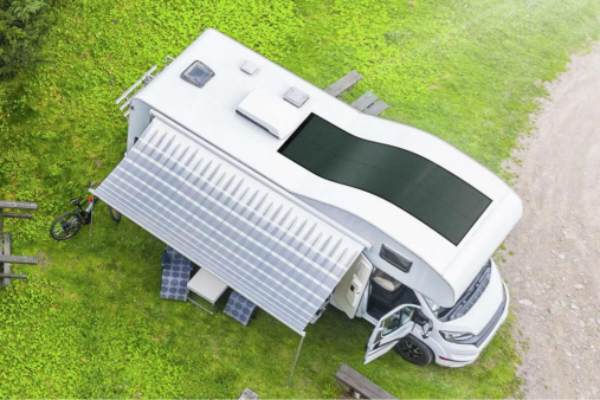
Can you imagine having solar panels on the roof of your car that generate electricity and give you a few extra miles? It's always fascinating to save money on gas, which is currently so expensive, by generating free electricity with solar panels. Another advantage of installing a solar panel on the roof of your car is that it protects the environment, because solar energy is clean.
Well, that's one possibility. I mean, installing solar panels on the roof of your car is possible. And it's easy to do if you know how to choose the right type of solar panels for the job.
However, before planning solar panels for your car, you must first be clear about the purpose of the solar panel. Solar panels can be used as an additional power source for a car since the car roof is very small compared to the energy needed to fully charge the batteries. Solar panels can also be used to power other devices in the car, such as air conditioning and music systems, so your goal of electrifying your car with a solar panel is crucial.
The second thing to think about before you start planning is the roof area of your car, or how big it is. The bigger the better, because the area of the solar panels directly affects the energy production. The third important factor is the type of mounting system you want to use to attach the solar panels to the car roof.
In this article, you will learn how to choose and install the best solar panel for your car roof.
- solar modules on the market
- Why are flexible CIGS solar modules best suited for car roofs?
- CIGS solar module technology
- How to install a CIGS solar panel on the car roof?
- Conclusion
solar modules on the market
Most of the solar panels in the market use monocrystalline or polycrystalline silicon cells. These panels are hard, heavy and not flexible. Car roofs are always curved because the car is designed in such a way to reduce air resistance when driving at high speeds. As we know, an automobile moves in a fluid called air. Whenever anything moves in a medium, there is always an opposing force called air resistance. To reduce the opposing force, the body is designed to be curvy. This curved body makes it difficult to attach the hard panels like crystalline panels on a car roof. Also, since the car moves at a speed of 100-130 km/h per hour, there is a strong wind pressure on the solar panels on the car roof.
Why are flexible CIGS solar modules best suited for car roofs?
Solar modules that are lightweight and flexible are best suited for car roofs for obvious reasons. Flexible CIGS modules are very lightweight and 360-Degree flexible. They are also aesthetically pleasing, adhere to the body and are easy to carry.
Anyone who has ever used the flexible CIGS solar module from BougeRV for his car always gave positive feedback and was absolutely delighted. There are reasons for this.
CIGS solar module technology
Flexible CIGS-Solar panels are the latest technological marvel. These cells are the latest breakthrough in thin-film solar panels. CIGS is a copper indium gallium selenide solar cell, a thin-film photovoltaic device that uses a semiconductor layer of copper indium gallium selenide (CIGS) to absorb sunlight and convert it into electricity.

The CIGS-Film acts directly as a bandgap material and forms a heterojunction due to the unequal bandgaps of the two different materials. Thin film cells are deposited on substrates such as flexible polymeric materials. The cell is constructed in such a way that the light enters through the transparent front ohmic contact and is absorbed by the CIGS layer. These electron-hole pairs form a "depletion zone" at the heterojunction of the p- and n-type materials on the cadmium-doped surface of the CIGS cell. This separates electrons from holes and creates an electric current.
CIGS solar modules can be manufactured on flexible substrates, making them suitable for a wide range of applications where crystalline solar modules and other rigid products are not suitable. In addition, CIGS solar modules weigh only a fraction of silicon cells and are unbreakable without glass. For example, a BougeRV-200W CIGS solar panel only 3.2kg. Flexible CIGS solar panels are easy to attach to curved surfaces such as cars, semi-trailers and airplanes. Their low profile minimizes drag and does not add significantly to weight.
How to install a CIGS solar panel on the car roof?
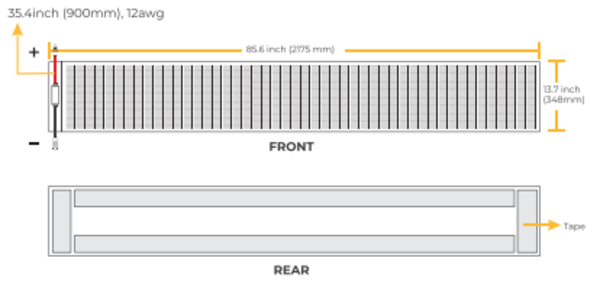
Compared to rigid crystalline solar panels, flexible CIGS solar panels are very easy to attach to any surface. Hard solar panels are also heavier compared to flexible CIGS panels as these panels have a glass thickness of at least 3.2mm. Mounting structures or racking systems made of aluminum or steel are required to install the hard crystalline panels. Skilled labor is required to repair this type of panel, making them more expensive.
But flexible CIGS modules are very easy to install, especially on car roofs. BougeRV CIGS solar panels have a protective tape on the back of the solar panel. All you have to do is peel off the tape and attach it to the car roof. Then connect the panel to the battery system's charge controller. It's that easy.
Summary
Flexible CIGS solar panels are the best solar panels to mount on a car roof.They offer several advantages:
- Flexible CIGS modules are flexible and lightweight
- Due to their flexibility, they can be easily attached to the curved car roof
- Da BougeRVSolar modules are delivered with adhesive tapes, no additional metal frame system is required for fastening
- Since the flexible solar module fits tightly to the car roof, the wind pressure on the module is very low and it is safe to drive
- There is no danger of plate breakage
- Since the efficiency of the CIGS module is high, it is more sensitive to light and generates more power
- It is aesthetically pleasing
BougeRV deals with flexible CIGS solar panels in the North American market. If you are interested in rooftop solar panels, you should contact BougeRV for their highly rated flexible CIGS panels. Leave your contact details here and authorized BougeRV representative will contact you to assist you in selecting and installing solar panels on your body.
Conclusion
1. What is the lifespan of CIGS solar modules?
CIGS solar panels have an extremely long lifespan. Typically, a CIGS solar system will generate electricity for 25 years. However, other silicon-based thin-film solar panels only have a lifespan of 10 to 15 years.
2. Is there maintenance for CIGS solar modules?
Thin-film technology is used to manufacture flexible CIGS cells. Unlike crystalline silicon solar modules, these can therefore be used in various configurations. CIGS solar modules are monolithically interconnected modules (MLI panels) consisting of components grown on a single flexible substrate and connected in series using a laser scriber. This eliminates many of the solder joints and diodes that are common in crystalline modules and represent sources of error.

 Outdoor Ausrüstung
Outdoor Ausrüstung
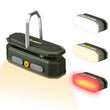 Campinglampen
Campinglampen
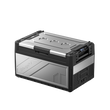 Rocky
Rocky
 CRPRO
CRPRO
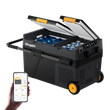 CRD2
CRD2
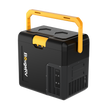 CRH
CRH
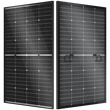 Bifacial Solarpanel
Bifacial Solarpanel
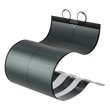 CIGS 360° Flexible Solarpanels
CIGS 360° Flexible Solarpanels
 Fiberglas Solarmodule
Fiberglas Solarmodule
 Solar Laderegler
Solar Laderegler
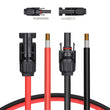 Solar Zubehör
Solar Zubehör
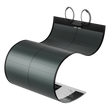 Alle Solarmodule →
Alle Solarmodule →
![[Neu]BougeRV faltbare Campinglampe, wasserdichtes Campinglicht für Zelt, Reisen und Notfälle.](http://de.bougerv.com/cdn/shop/files/yl002_f21bb3df-4096-4fd3-97ac-b37392cdab04.webp?crop=center&height=110&v=1740103834&width=110) Camping Lampe
Camping Lampe
 Outdoor Geräte
Outdoor Geräte









